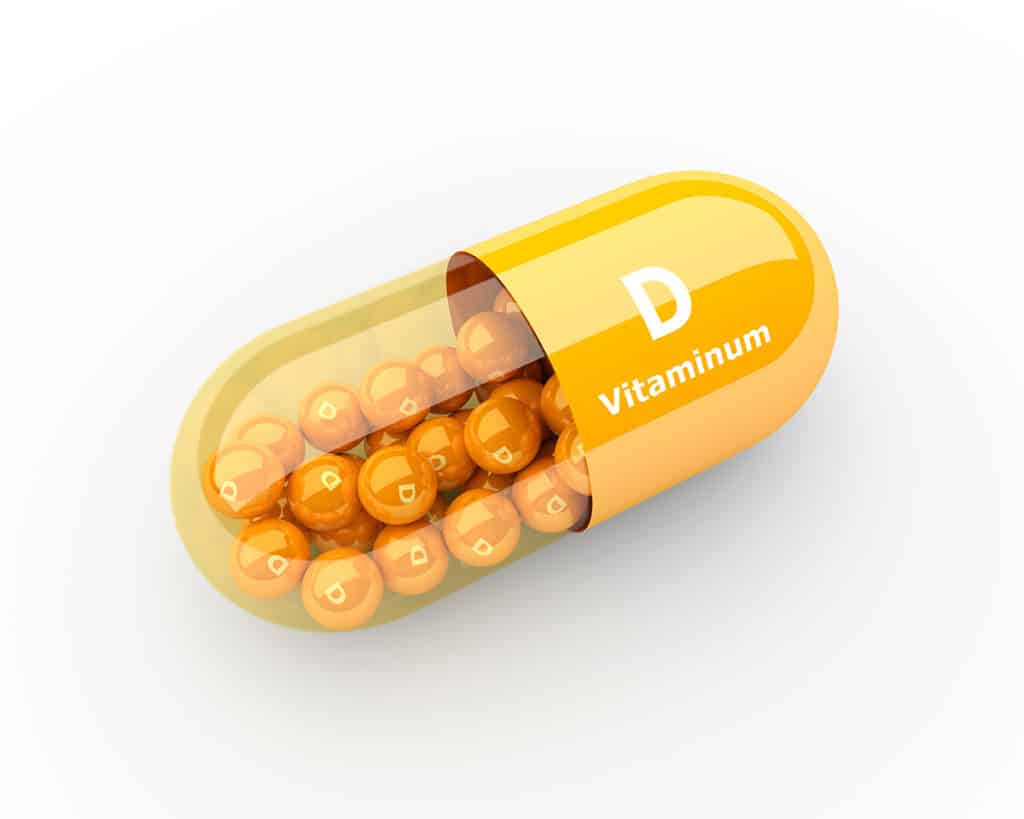Millions of people worldwide struggle with sleep disturbances, and the quest for a good night’s sleep has led many to explore the potential benefits of vitamin D.
Vitamin D is a vital nutrient that plays many essential roles in the body, including regulating calcium levels, supporting the immune system, and promoting bone health. But does vitamin D help you sleep? We’ll explore the latest findings to help you decide whether vitamin D might be the key to unlocking a better night’s sleep.
What Is Vitamin D?
Vitamin D is a naturally occurring vitamin that is fat-soluble and helps our bodies to absorb other nutrients such as calcium and phosphorus. It’s not only important for the healthy functioning of the human body; vitamin D also helps reduce cancer cell growth, inflammation, and other infections.

Vitamin D Benefits
There are many benefits of Vitamin D that help our bodies on a daily basis. These are some of the biggest health benefits of Vitamin D.
- Improve Immune Health – Vitamin D provides energy to our hard-working immune cells so they can continue to fight illness and infection.
- Reduces Inflammation – Vitamin D reduces the number of C-reactive proteins (which cause inflammation) in our bodies.
- Aids Weight Loss – Studies have shown that Vitamin D supplements can significantly reduce a person’s body mass index (BMI).
- Helps Strengthen Bones – Vitamin D enables the absorption of calcium which helps strengthen bones.
- Helps prevent seasonal affective disorder (SAD) – SAD is caused by a lack of Vitamin D from sunshine. Supplementing with Vitamin D when you aren’t getting enough sunlight prevents SAD.
- Aids Neurodevelopment – Studies show that Vitamin D creates active neural pathways, which can help prevent illnesses such as dementia, depression, and schizophrenia.
- Lowers Cancer Risk – Studies show that increased levels of Vitamin D are associated with reduced risk of cancer.
- Regulate Insulin Levels – Taking vitamin D or spending time in the sunshine lowers your chances of developing type 2 diabetes because it regulates insulin levels.
Symptoms of Vitamin D Deficiency
Vitamin D deficiency can be hard to identify because the symptoms could be caused by many different ailments. But if you are suffering from these symptoms, it could be time to start supplementing with Vitamin D:
- Pain that feels like it’s coming from your bones
- Fatigue and tiredness, despite getting adequate sleep
- Muscle aches and weakness
- Mood changes such as depression
Does Vitamin D Help You Sleep?
Research has been done to outline the correlation between vitamin D and sleep regulation. A deficiency in Vitamin D has been linked to people having trouble falling asleep and getting less overall sleep during the night.
The Link between Vitamin D and Melatonin
Both vitamin D and melatonin help promote a good night’s sleep. Studies have shown that a vitamin D deficiency may affect the secretion of melatonin. This means that a lack of vitamin D may actually prevent your body from using melatonin to help you sleep.
RELATED: Melatonin and Sleep
When to Take Vitamin D for Sleep
When taking Vitamin D, it’s best to be consistent and take it on a daily basis. The time of day doesn’t really have an impact, but healthcare providers advise taking vitamin D in the morning in case it may affect melatonin production. Because vitamin D is fat-soluble, it will be absorbed better when eaten along with high fat foods.
How Much Vitamin D Should I Take for Sleep?
The National Institute of Health recommends the following Vitamin D supplementation:
| Age Group | Age Range | Daily Vitamin D Dosage |
| Infants | 0 – 12 months | 10 mcg(400 IU) |
| Children & Teens | 1 – 18 years | 15 mcg(600 IU) |
| Adults | 19 – 70 years | 15 mcg(600 IU) |
| Elderly | >70 | 20 mcg(800 IU) |
How to Increase Vitamin D Levels
Vitamin D helps with so many important bodily functions, so it’s important to make sure you have good vitamin D levels. Here’s how you can increase your vitamin D intake:
Enjoy Sunlight
Getting your vitamin D directly from the sun will not only increase your vitamin D levels, but it will help to regulate your circadian rhythm too.
RELATED: How Does Light Affect Sleep?
Eat Foods High in Vitamin D
It’s no secret that nutrition impacts sleep. Eating foods that are high in vitamin D can help prevent sleep disorders and promote a better night of sleep.
Try a Vitamin D Supplement
Sometimes, it’s difficult to get vitamin D naturally. But that doesn’t mean you have to become vitamin D deficient. Try taking a high-quality vitamin D supplement to ensure your body is getting enough of the nutrients it needs.

Do Vitamin D Supplements Work?
Vitamin D supplements work best when taken with high-fat foods. They can be very effective in reducing inflammation, controlling infections, reducing cancer cell growth, and regulating sleep patterns.
FAQs
Does vitamin D make you sleepy?
Vitamin D is non-drowsy so it won’t make you sleepy, but it can still help you get a better quality night’s sleep by regulating your sleep patterns.
Can lack of sleep cause vitamin D deficiency?
There is a link between vitamin D deficiency and sleep disorders, however, studies have not yet proved what the root cause of this link actually is.
Can vitamin D cause sleep problems?
Vitamin D doesn’t cause sleep problems, but lacking this essential vitamin can cause sleep disorders and difficulties sleeping.
Can too much vitamin D affect sleep?
Increasing your vitamin D levels with supplements could delay melatonin production, which could then lead to sleep disturbances. Taking a vitamin D supplement in the morning rather than in the evening could avoid this issue.
Can vitamin D cause insomnia?
There are no studies to support that vitamin D supplements cause insomnia, however, healthcare professionals advise taking the supplement in the morning because it may affect melatonin production.

